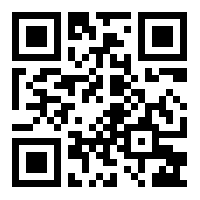This is a Test to help decide what content you want to add to this page.
Home »

Hi, I'm Dr. Eran Magen, Founder & CEO
Our founder and CEO, Dr. Eran Magen (LinkedIn), received his Ph.D. in psychology from Stanford University, completed post-doctoral training in population health as a Robert Wood Johnson Health & Society Scholar, and served as the research director for the Department of Counseling and Psychological Services at the University of Pennsylvania before starting Circles of Support, Inc., to empower medical students, first responders, law enforcement, firefighters, doctors, nurses, and healthcare professionals to seek support.
FEATURED IN LEADING PROFESSIONAL PUBLICATIONS
Our work on increasing EAP and other support resource utilization, preventing crisis,
and improving wellness has been featured by leading professional associations, including:
Early Alert identifies users in the early stages of distress and connects them to support resources that your organization already offers. Early Alert can be used by employers, hospitals, clinics, educational institutions, and any other organization wishing to proactively identify and support individual members who may be experiencing distress.
Absolutely. You can try a demo by texting the word "demo" to 650-670-4440.
Connecting people in the early stages of distress with support resources can mitigate and reverse the distress. Preventing distress from growing and turning into a crisis is good for the individual receiving support and for the organization that serves individuals and relies on their productivity. For educational institutions, early identification of distress means less distracted students, better academic performance, higher retention, and fewer situations resulting in crisis. For employers, early identification of distress means fewer sick days, better work performance, and less turnover.
Many organizations offer a variety of support resources that employees or students don't utilize. Low utilization can be the result of multiple reasons, including not remembering that the support resources exist, not knowing at which point to connect with support resources, and not being sure how to initiate contact. Early Alert makes it easy for users to connect with the right support resource exactly when they need to, by providing them with contact information for the relevant support resources to the specific concern the user is facing.
We have found that users are more likely to respond and to respond honestly when they are not concerned that their information will be shared with their organization. All user responses are confidential. We do not report individual identifiable information back to the organization, except in situations involving a safety concern (potential risk to self or others). We only provide organizations with de-identified, aggregate data in the form of a wellness dashboard.
Early Alert is not an app. We communicate with our users via text messaging, which is a natural and smooth form of communication that most of us respond to very quickly. This means that there is no app to install, operate, or update. If you can use text messaging, you can use Early Alert.
Early Alert is proactive. Whereas many apps or websites offer self-screening tools that people can use(if they remember to do it, and if they make the time to do it), Early Alert proactively reaches out to users in order to ask how they are. This results in very high response rates and a much better chance of catching someone in early stages of distress, rather than after things have already gotten bad.
Setting up Early Alert requires approximately 30 minutes of administrative time. This is used to map wellness domains we assess to your support resources.
Running Early Alert requires no administrative time. The system runs automatically. You have ongoing access to a live dashboard, which you can utilize whenever you wish.
A check-in is typically a single question that asks users to respond with a number between 0-10, rating their wellness in a given domain. If a user responds in a way that does not suggest any distress, we acknowledge receiving the response and wish the user a good day. If a user provides an answer that suggests potential distress and the user is interested in learning about support resources, we send back suggestions for support resources via text messaging, including phone numbers and URL's for scheduling appointments. Users can (and often do) use this information to schedule appointments for addressing their wellness challenges, by simply tapping on the information in the text message we send them.
By default, we check in with users once a week. Like every part of Early Alert, the frequency of check-ins can be customized based on your preferences.
We send a single "nudge" after a few hours, to remind users to answer the question in case they were busy when we sent the original check-in. We do not send additional nudges, in order to maintain a positive (rather than nagging) relationship with our users. If we do not hear back from a user after a nudge, we will check in with them at the regularly scheduled time for the next check-in.
Early Alert assesses all facets of wellness, including mental health, physical health, relational health, spiritual health, and financial health, to name a few. When we start working together, we will share our complete list of domains with you, and we can add or remove domains based on the needs of your organization.
When users respond in a way that suggests they may be experiencing distress, we send recommendations for two types of support resources. Primary Support Resources offer users an opportunity to speak with an expert (such as a psychotherapist, a physician, or a financial aid advisor). Self-Help Resources offer users who are not ready to speak with an expert an opportunity to learn more about their challenges and take steps toward better health.
When we set up Early Alert with your organization, we will ask you to provide support resources for each of the wellness domains we assess. If your organization does not provide support resources for particular wellness domains, we can help you identify external support resources that we have vetted for quality.
Early Alert connects people to support resources that your organization already offers. If your organization does not have support resources for particular wellness domains, we can help fill in these gaps. Please contact us to discuss your specific needs: info@EarlyAlert.me.
Early Alert is fully customizable to meet your organization's needs. We will gladly customize the specific wellness domains we assess, the support resources we suggest, the frequency of check-ins, and the demographic data we collect in order to construct your wellness dashboard.
Users register through their organization's web portal. The sign-up process takes about 1 minute, during which users provide their name and phone number, answer some demographic questions, and agree to the terms of service.
Early Alert collects a large amount of data from users and aggregates it into a Wellness Dashboard that your organization can use to identify patterns and clusters of distress. Aggregate data are de-identified.
You can analyze the data based on demographic variables such as gender, ethnic background, and location. We will gladly include additional variables based on your needs (for example, specific divisions within your organization), as long as adding those variables will not make it possible to determine the identity of individual users.
The Wellness Dashboard can help you identify patterns and clusters of distress, thereby guiding your wellness work. For example, you may learn that your female Hispanic employees have been reporting increasing levels of distress over the past 2 months, and consequently investigate the possible causes and/or assign additional wellness resources to support them.
Early Alert is NOT an emergency response system. We do NOT monitor user responses around the clock. Our goal is to identify users in the early stages of distress and connect them to support resources.
Early Alert is not an emergency response system, and therefore we cannot guarantee an immediate response in situations of a potential safety concern. If users provide information that suggests a potential safety concern (harm to self or others), users automatically receive a text message that encourages them to contact 911 or their local organizational safety department, along with its phone number. A member of our team will review the information within two business days. If the information suggests a safety concern, we will contact your organizational point person to share our concern and initiate a wellness check.
Many leading organizations offer online self-screening tools, with clear disclaimers noting that they are not a substitute for consulting a professional, that they are not an appropriate method of initiating emergency care, and that users experiencing safety concerns should contact 911 and/or other emergency resources (for example the University of Pennsylvania, the Jed Foundation's U Lifeline, the District of Columbia Bar). Early Alert follows the same best practices.
Absolutely. Please contact us at info@EarlyAlert.me to receive contact information for professional references from current clients in your industry.
We would love to answer them. Please contact us at info@EarlyAlert.me.



